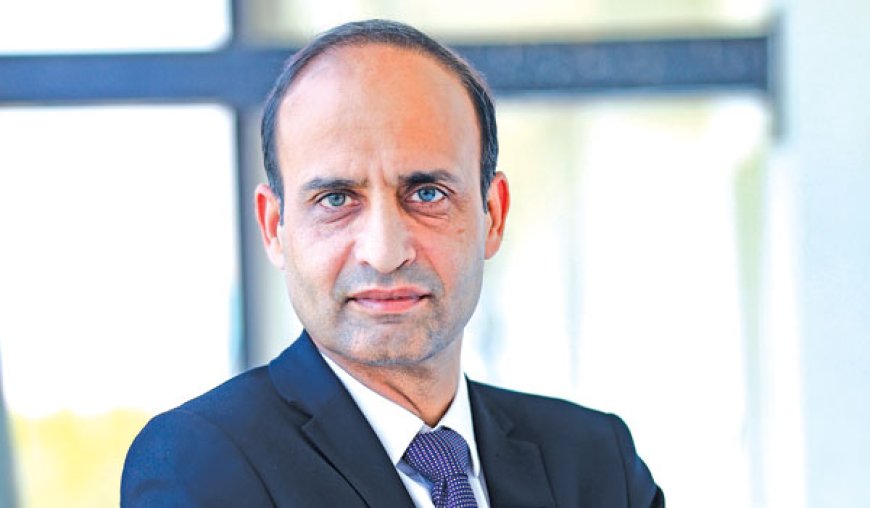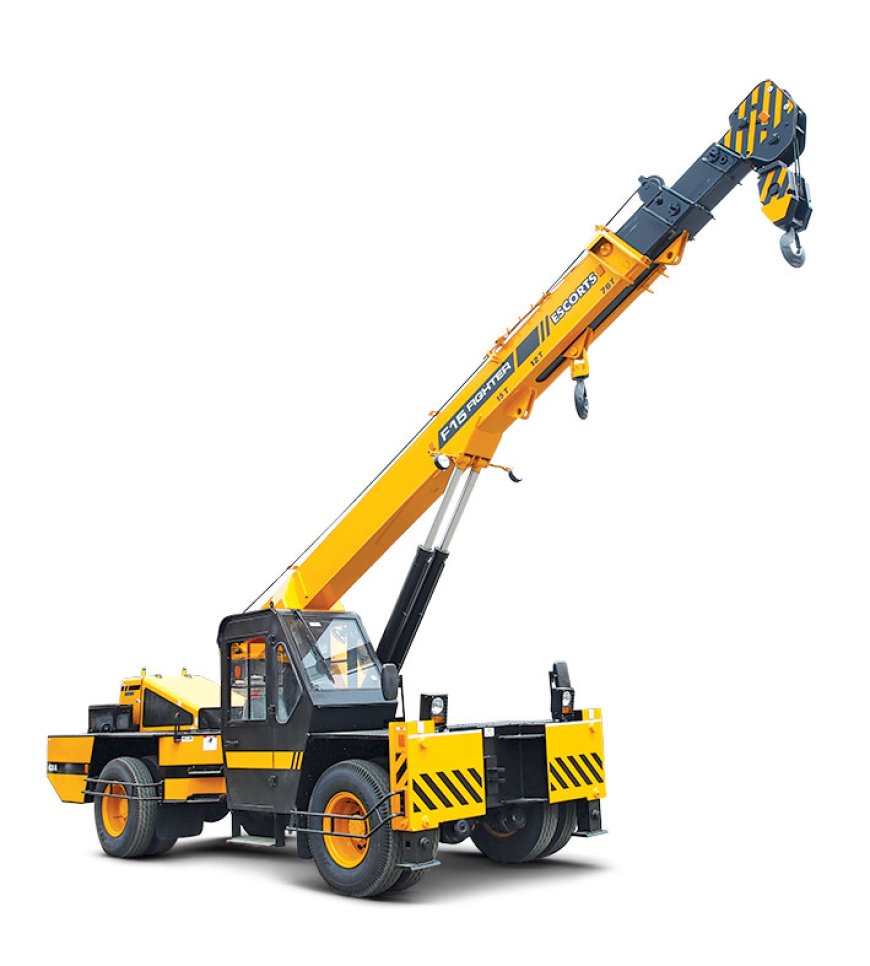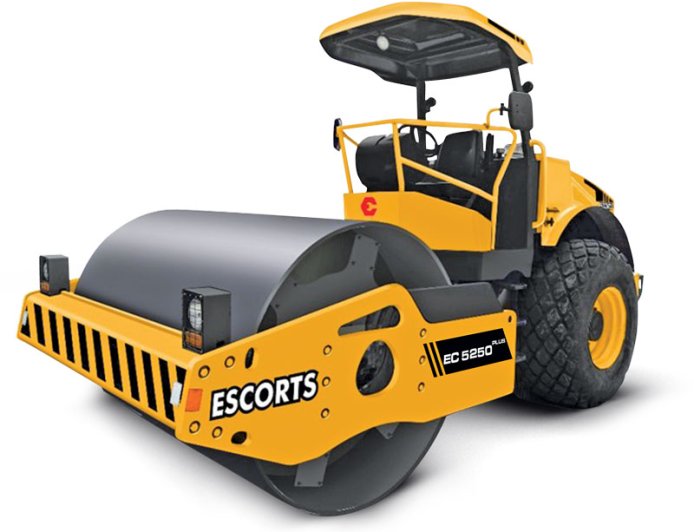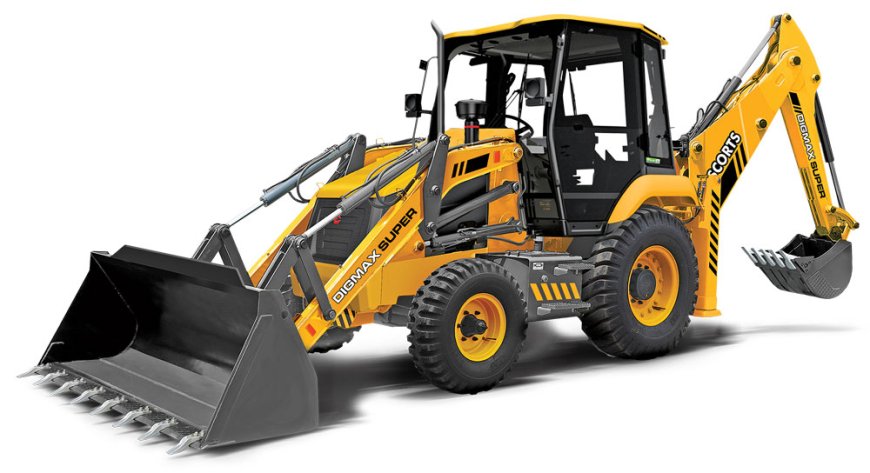Our plant has embraced the Kubota Production System (KPS), which has significantly enhanced operational efficiency

Sanjeev Bajaj
Chief Officer, Construction Equipment Business Division, Escorts Kubota
How does your participation at Bauma India 2024 reflect the theme of ‘Innovation for Nation Building,’ and what specific innovations are you showcasing that align with this theme?
Our participation at Bauma Conexpo India 2024 underscores our commitment to the theme ‘Innovation for Nation Building.’ At the core of our focus are safety, productivity, and efficiency. We are showcasing innovations in energy efficiency, operator safety, automation, and real-time monitoring—key advancements that contribute to India’s infrastructure development in a safe and sustainable manner.
All of our new products comply with CEV V standards and are legislated with CEV II Safety norms, offering a range of innovative features to meet diverse customer needs, whether for captive use or rental applications. With our product range representing 55% of the construction equipment industry’s volume, we remain dedicated to leading the development of technologies and solutions that best serve our customers.

In recent years, your company has been focusing on exports, despite the challenges posed by the competitive global market. What strategies do you employ to differentiate your products and services internationally?
We prioritize understanding the unique needs of global customers and continuously upgrade our products to meet the latest emission and safety standards. This approach has significantly boosted the acceptance of our offerings in international markets. The gap between products from developed and developing markets is narrowing, and the cost advantages of manufacturing in India make our products more competitive.
 For instance, our newly designed export-oriented backhoe loader is a game-changer. It features an extending dipper, rock breaker compatibility, multiple bucket options, AC/HVAC systems, and is designed to withstand extreme sub-zero climates. These advanced features have strengthened our position in the global market. Additionally, we are expanding our distribution network, with our business now spanning over 20 countries. This strategic expansion ensures a well-distributed presence, helping us overcome barriers like logistics and tariffs effectively while maintaining competitive pricing.
For instance, our newly designed export-oriented backhoe loader is a game-changer. It features an extending dipper, rock breaker compatibility, multiple bucket options, AC/HVAC systems, and is designed to withstand extreme sub-zero climates. These advanced features have strengthened our position in the global market. Additionally, we are expanding our distribution network, with our business now spanning over 20 countries. This strategic expansion ensures a well-distributed presence, helping us overcome barriers like logistics and tariffs effectively while maintaining competitive pricing.
Sustainability is a critical aspect of modern infrastructure. How is your company innovating to reduce energy consumption, minimize emissions, and incorporate green technology in your equipment?
Sustainability is integral to human life, and we prioritize it from the very beginning—starting with the design of our equipment. Our machines are engineered for lower fuel consumption per unit of work done. We ensure that the materials used by us and our suppliers adhere to stringent guidelines and best practices for sustainability.
We actively integrate energy-efficient technologies into our equipment to minimize environmental impact while enhancing operational safety. For instance, compliance with CEV Stage V standards is a significant step toward reducing our carbon footprint. Our latest product range is designed to be more fuel-efficient than previous models, thanks to innovations in our hydraulic and engine systems, which lower overall energy demand.
Additionally, our manufacturing facilities embody our commitment to sustainability. They are energy and water efficient, equipped to generate solar power on-site and harvest rainwater. These initiatives not only reduce environmental impact but also reflect our holistic approach to sustainable operations.

Given the rising costs of production and operational challenges, how is your company optimizing manufacturing processes and addressing supply chain issues?
Our plant has embraced the Kubota Production System (KPS), which has significantly enhanced operational efficiency. This approach has not only improved our capacity to meet future demand but also ensured the delivery of high-quality products while minimizing waste.
In the supply chain, we have conducted a comprehensive procurement assessment program and implemented supplier quality upgrades to standardize processes and ensure timely deliveries. Additionally, our Kaizen Community, with active participation from experts at Kubota Japan, undertakes theme-based projects focused on cost reduction, productivity improvement, and operational efficiency at our suppliers’ facilities.
We are also investing in capacity enhancement for critical suppliers to align with projected industry growth. These measures ensure we remain well-equipped to address future challenges while maintaining our commitment to quality and delivery excellence.
The MSME sector is critical to the construction equipment supply chain. How do you plan to upskill MSMEs to ensure they produce high-quality components? Are there any collaborations or government initiatives you’re involved in to enhance MSME standards?
The MSME sector plays a pivotal role in the construction equipment supply chain. To support their journey toward producing high-quality components, we actively collaborate with these industries.
We provide technical assistance by establishing our own standards and processes and promoting the adoption of international quality certifications such as ISO 9001 and TS 16949. These certifications help MSMEs build a reputation for quality and reliability, making them more attractive to OEMs and other stakeholders. By encouraging best practices and enhancing production processes, we enable MSMEs to improve their product quality significantly.
We also recommend MSMEs to engage with government agencies, industry associations, and participate in events organized by ICEMA and CII. These programs focus on areas like quality control, lean manufacturing, and advanced technologies, providing MSMEs with valuable insights and tools for improvement.
In addition, we actively support the “Make in India” initiative, which aims to promote domestic manufacturing and integrate MSMEs into the global supply chain. Through these combined efforts, we aim to uplift MSME standards and strengthen their role in the industry.
What incentives or support mechanisms should be in place to attract multinational component manufacturers and investment in high-quality component manufacturing for the equipment and automotive sectors?
The government’s ongoing focus on the construction equipment (CE) industry, coupled with a quicker response to industry challenges through bodies like ICEMA, has fostered an environment conducive to innovation and the development of cutting-edge products. The government’s vision on energy independence, self-sufficiency, and climate change is driving the sector towards the development of fuel-efficient and carbon-neutral solutions. While manufacturers must invest in these emerging technologies, it is essential that these efforts are backed by targeted incentives like the PLI scheme or other forms of support to accelerate investment. Additionally, adopting carbon-neutral technologies will require a supportive external environment, which necessitates collaborative initiatives between both the government and the industry.








